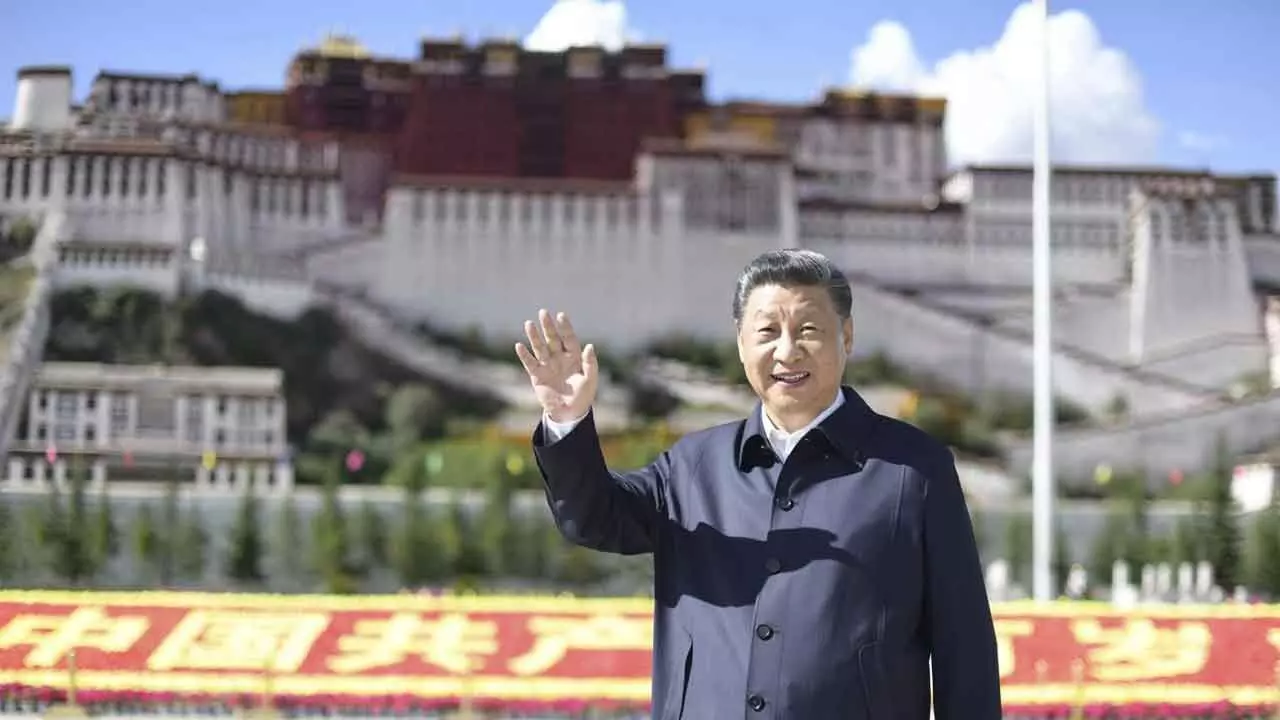Xi Jinping Visits Tibet: Ethnic Tensions, Dalai Lama Dispute in Focus
China’s Xi urges a 'modern socialist Tibet' amid protests, border tensions, and tightened political control.
China Marks 60 Years of Rule in Tibet with Xi Jinping's Rare Visit

Lhasa, Tibet — Chinese President Xi Jinping paid a rare visit to Tibet on Wednesday, his second trip to the region as head of state, marking the 60th anniversary of Beijing’s firm control over the Himalayan territory.
According to Xinhua News Agency, Xi was welcomed in Lhasa by crowds waving bouquets and dancing to “joyful rhythms.” He urged officials to build a “modern socialist Tibet — united, prosperous, civilized, harmonious, and beautiful.”
Historical backdrop
♦ 1951: Communist forces occupied Tibet.
♦ 1965: Mao Zedong’s regime formalized the Tibet Autonomous Region under one-party rule.
♦ Following decades: Political repression, destruction of Buddhist monasteries, and arrests of monks became widespread.
Tightened control under Xi
♦ Han migration: Large numbers of Han Chinese have moved into Tibet.
♦ Cultural restrictions: Schools now teach mainly in Mandarin, while Tibetan children are separated from families in state-run boarding schools.
♦ Closed borders: Foreign journalists and visitors face strict access limits.
♦ Religious interference: Beijing insists it alone can appoint the next Dalai Lama — now aged 90 and living in exile in India since 1959.
Protests and geopolitical tensions
On Tuesday, exiled Tibetans protested in India during a visit by China’s foreign minister. Critics say repression has intensified since the 2008 anti-government protests, while Beijing points to poverty alleviation and rapid infrastructure development in the region.
Tibet also sits on China’s contested border with India, where Beijing has been building roads and military-ready infrastructure to strengthen its strategic position.
Competing narratives
China claims Tibet has been part of its territory for centuries, citing historical ties, while many Tibetans argue they were effectively independent under their Buddhist theocracy until Chinese troops took control.

